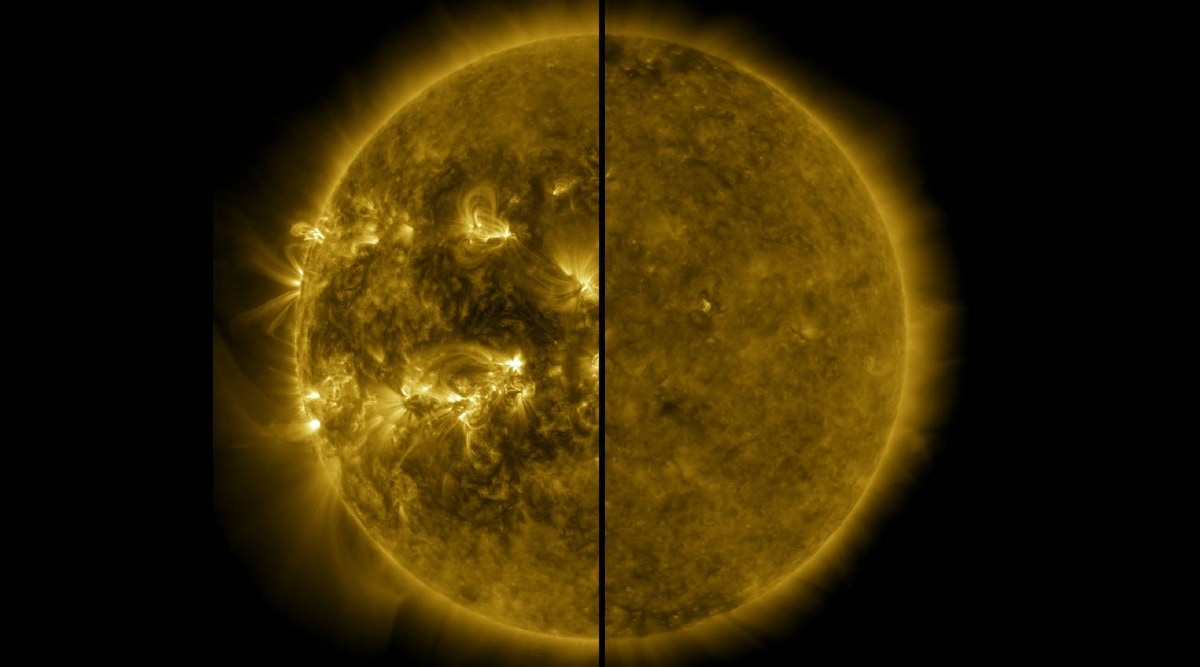
[ad_1]
 New Solar Cycle begins
New Solar Cycle begins
NASA and National Oceanic and Atmospheric Administration have claimed that a new Solar cycle has begun that may bring transforming changes in human lives on earth and the way technology is perceived in its usage. It is also said to affect the lives of astronauts in space.
This is the 25th Solar Cycle that has commenced after the Sun reached its Solar minimum, which many believe can lead to bleak and cold weather on the Earth. Space agencies analyse various peculiar activities on the surface of the Sun which includes monitoring black spots, explosions, solar flares, etc.
What is Solar Cycle?
The Solar Cycle is essentially a process in which the Sun’s magnetic field witnesses a cycle in which the north pole and south pole tend to switch their positions due to which it becomes quite an active midway through the course of the cycle.
Sun begins the new Solar Cycle every 11 years. In a new Solar Cycle, various turbulent activities take place on the surface of the Sun marked by volcanic eruptions and severe radiations which indeed affect life on the planet.
Scientists claim that the new Solar Cycle began in December 2019, but it took several months to decipher due to the complexity posed by the Sun. ‘Solar Cycle 25 Prediction Panel’ said that the trend of the Solar Cycle over the course of time is weakening.
To put things in perspective, solar flares caused due to Solar Cycle may release radiation along with the Sun’s magnetic field which may affect the upper atmosphere of the Earth by emanating hazard for satellites, transformers and spacecraft, as published by ‘Inverse’ website.
NOAA and NASA have collaborated to work under the ‘National Space Weather Strategy and Action Plan’ which calibrates the consequences of a new Solar Cycle and solar changes on the weather system on earth as well as that in the Space.
Such rigorous research-based observation helps the agency to predict crucial weather-related updates and to improve the space weather system. Eventually, scientists’ aims behind this programme is to seamlessly predict the space’s weather as they do on the Earth.
📣 The Indian Express is now on Telegram. Click here to join our channel (@indianexpress) and stay updated with the latest headlines
For all the latest Technology News, download Indian Express App.
[ad_2]
Source link